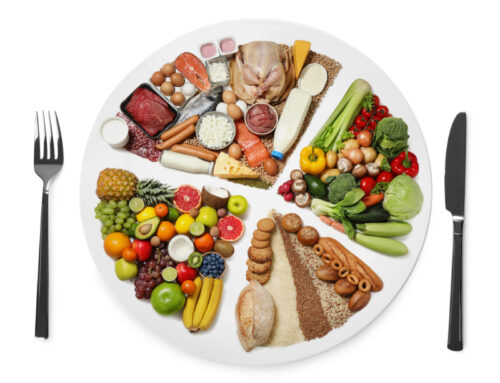By Monica Grainger, MSW, RSW
Establish a regular eating schedule.
Plan when you are going to eat and what your meals and snacks will be ahead of time. You are less likely to be tempted by unhealthy food.
Know your triggers.
Do you tend to eat when you are bored, anxious, or excited? Do you succumb to your cravings? Are you in social situations where you are offered food? Do you think about food, imagine having your favourite dessert?
Being able to predict what will trigger overeating or grabbing junk food will help you reduce your exposure to it.
Eliminate your sabotaging thoughts.
“I have no willpower/I’m a failure at passing up junk food/Everyone else is having it/I can’t resist this/It’s unfair that others can eat anything and I can’t.”
When you begin to feel hungry, ask yourself: “What I am thinking about ?” This will identify your sabotaging thoughts.
Reframe sabotaging thoughts into coping thoughts.
“I have the power to control my behaviour and I will be pleased with myself if I refrain from eating right now/I can pass up junk food and my body will thank me for it later/Not everyone is having dessert and I can have a small piece whenever I plan ahead/Not everyone can eat what they want and I won’t reach my goal if I don’t resist it right now.”
These coping thoughts can be saved in the notes app on your phone and refer to them several times a day.
Tell people close to you that you have made changes in your eating.
According to Judith Beck, author of the “Weight Loss Workbook” it is essential that you inform the people closest to you that you have changed the way you eat. This will provide greater support to help you maintain your weight loss and keep it off!
If you are interested in practicing mindful weight loss, join our Train Your Brain Weight Loss Group with Monica Grainger, RSW, MSW. Group Sessions are Saturdays 10-11:30am. The next group session starts December 7th. Send us a message to learn more!
Error: Contact form not found.






